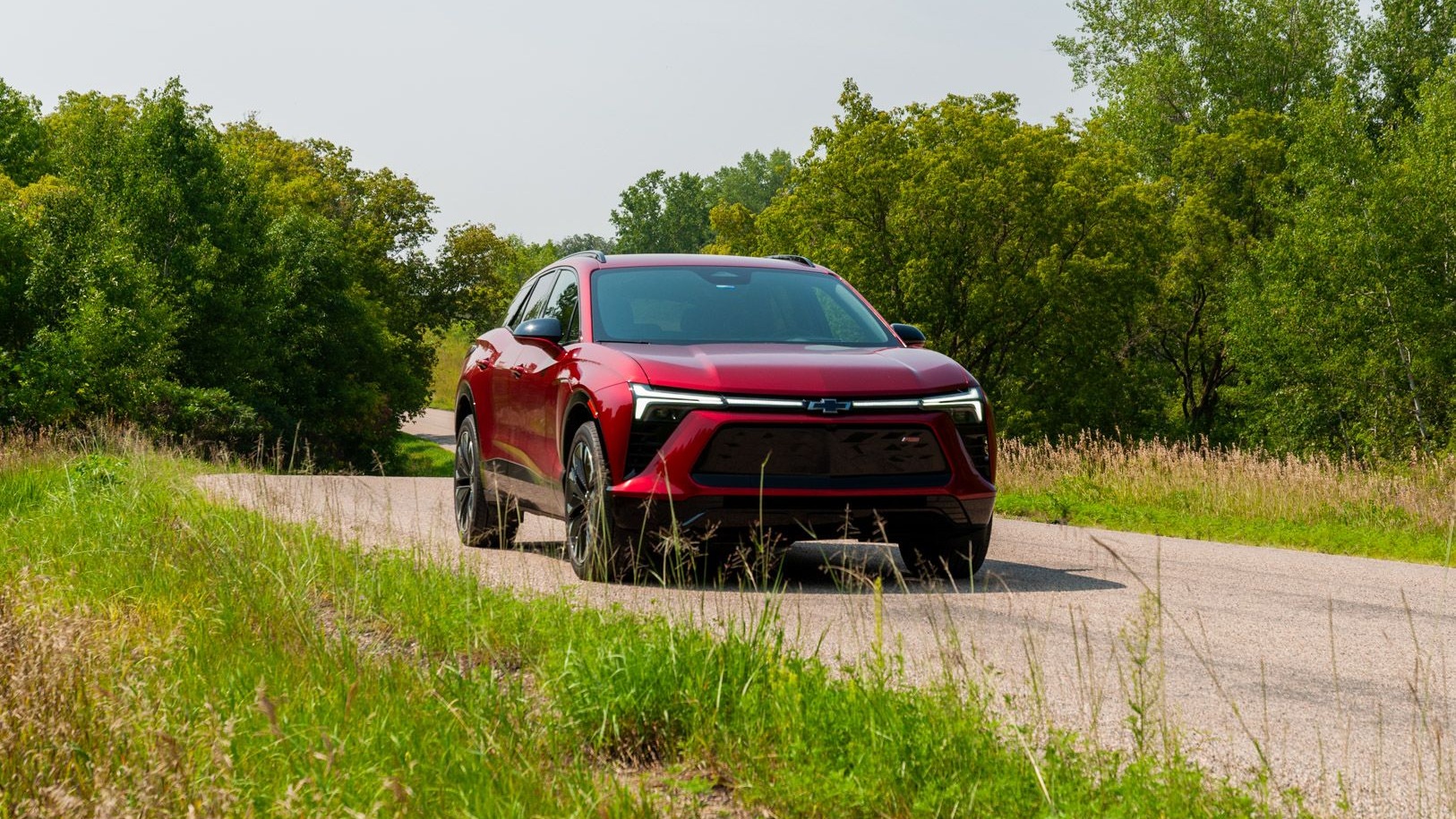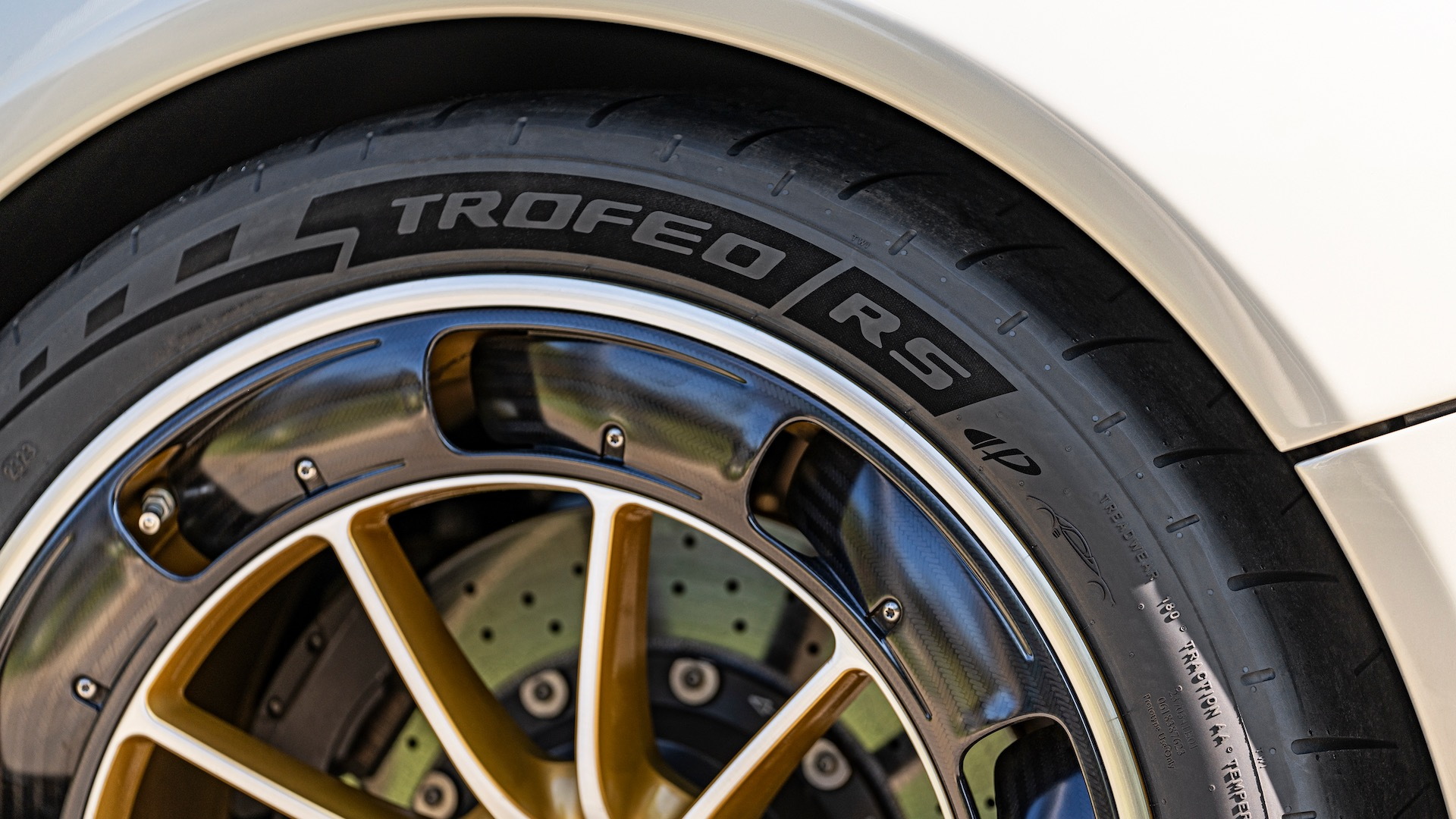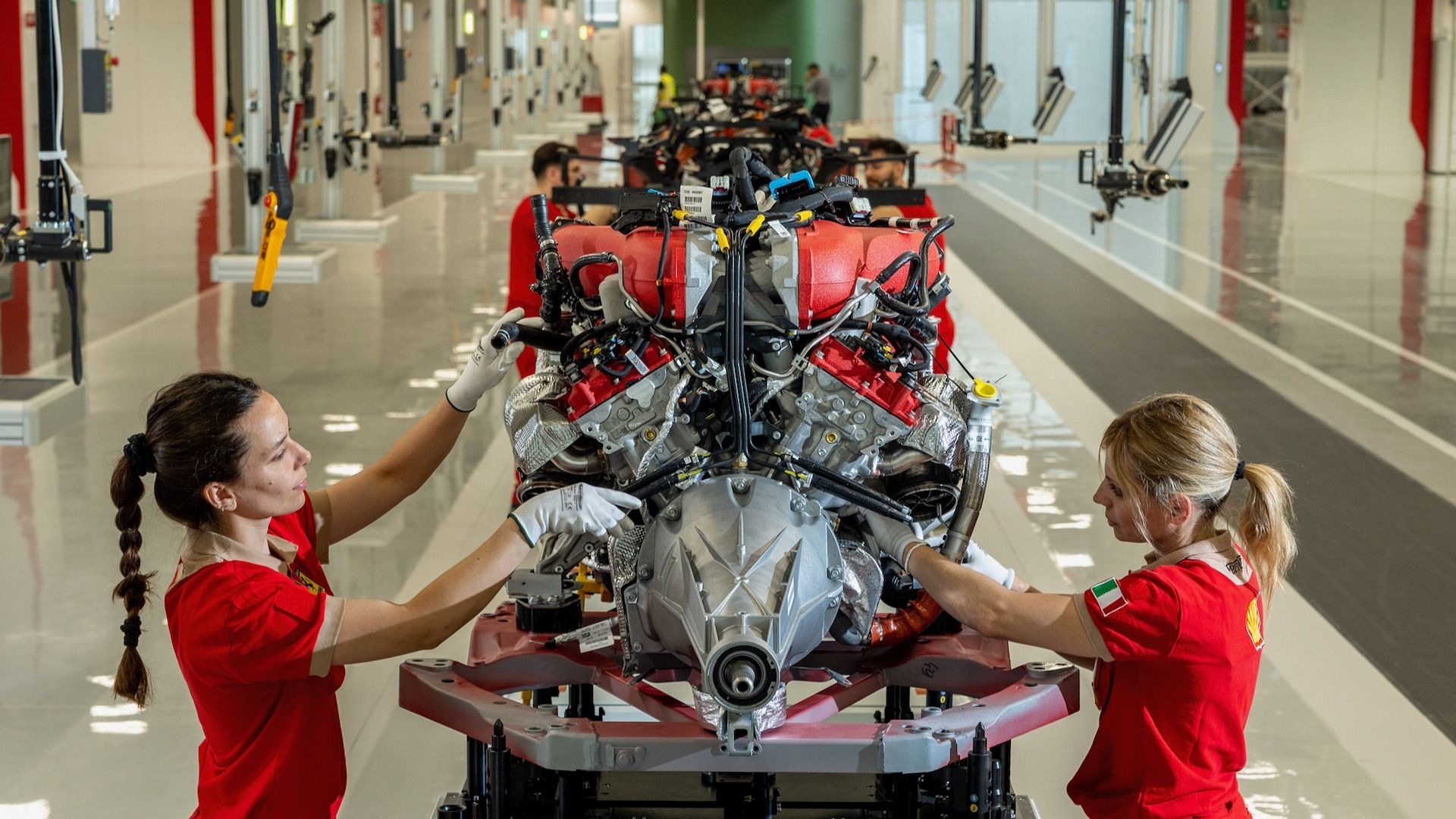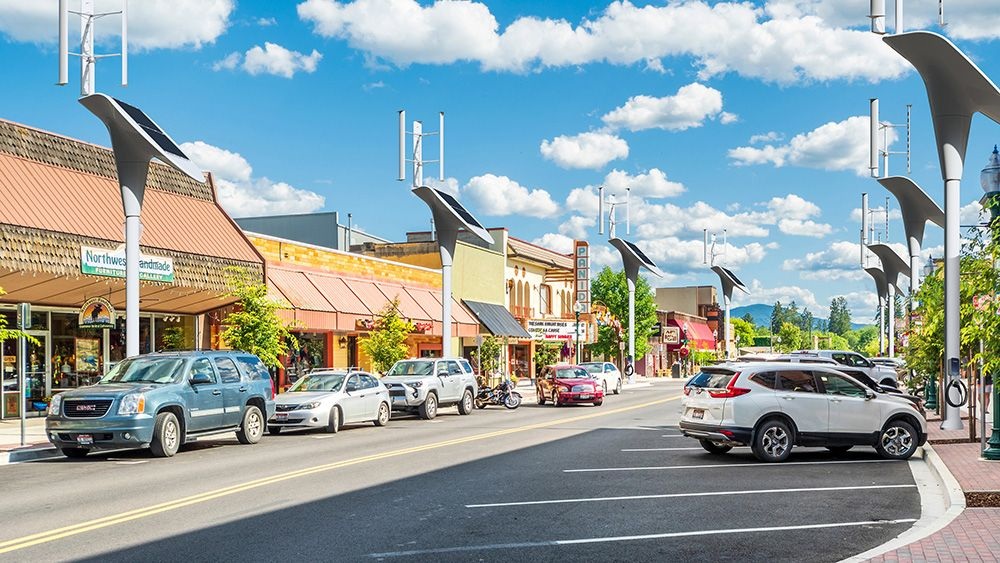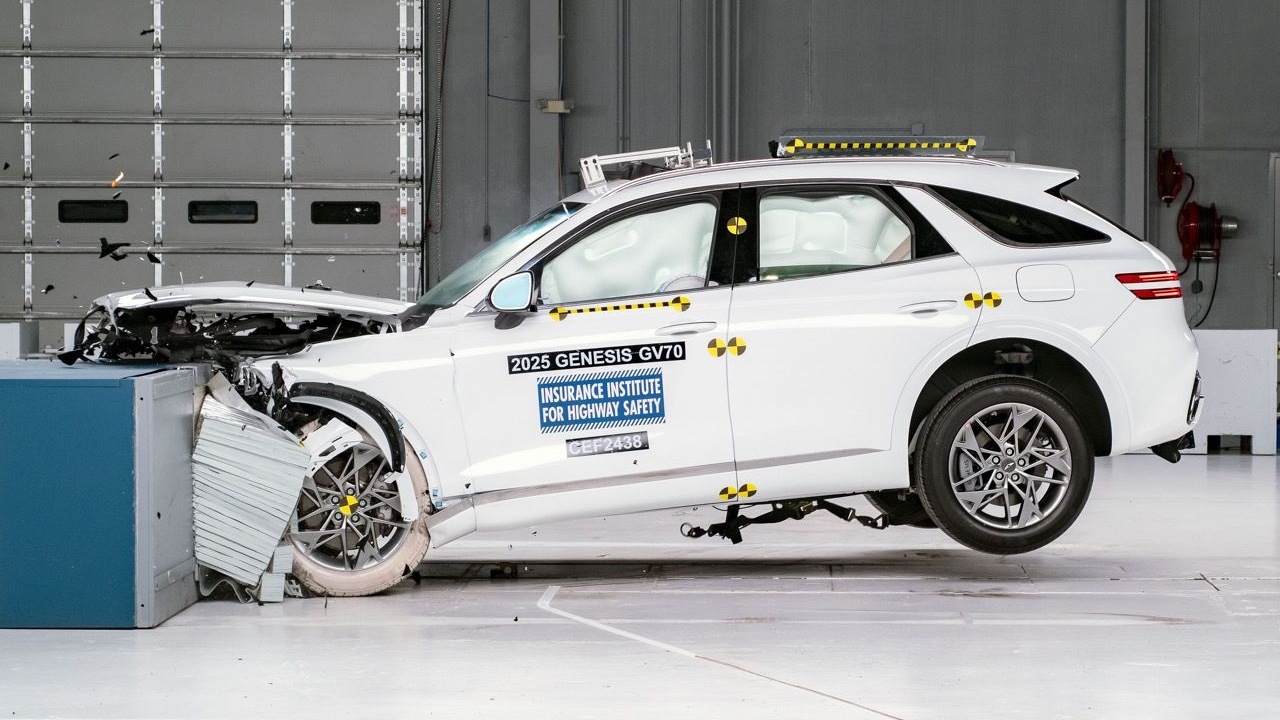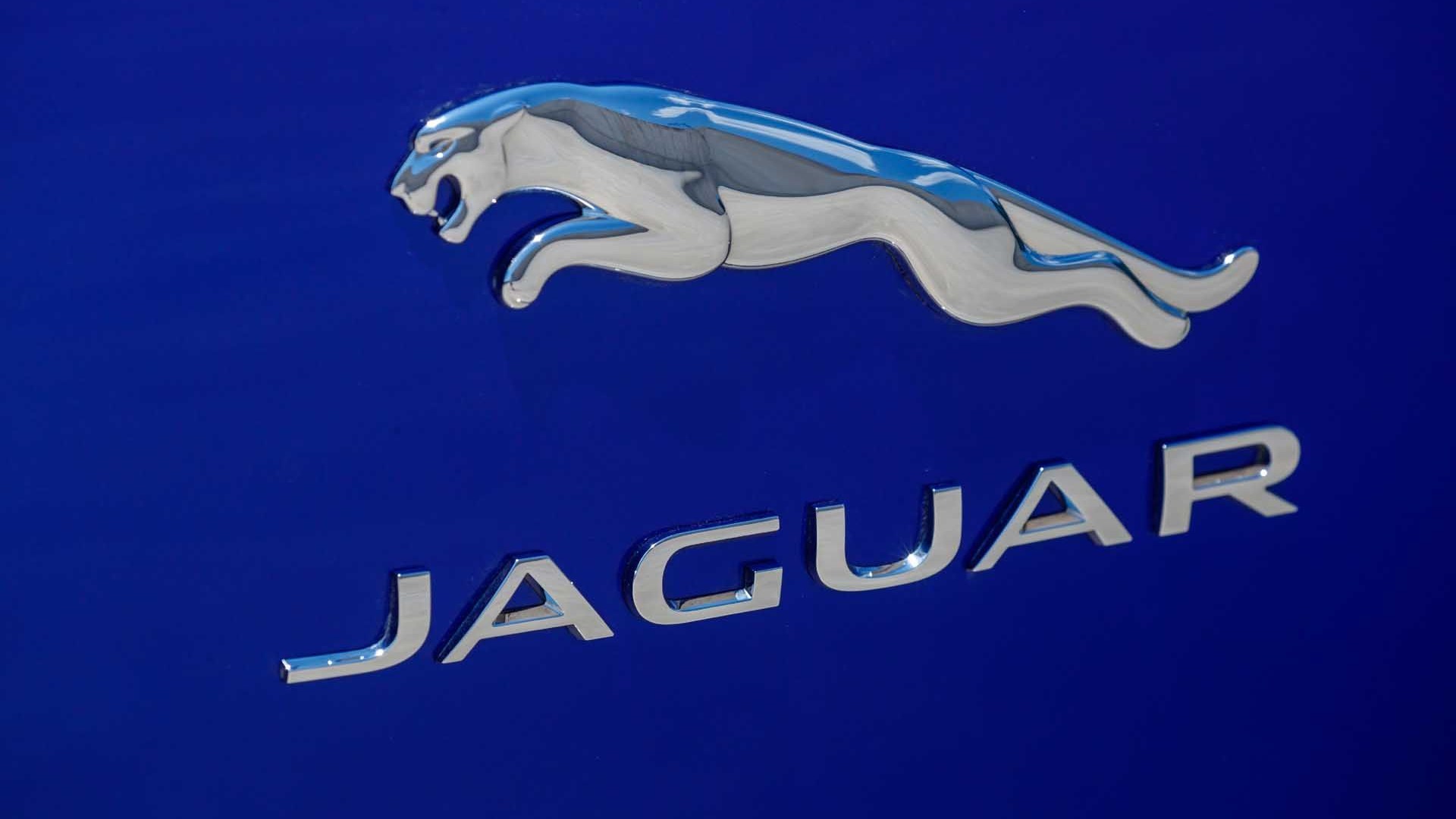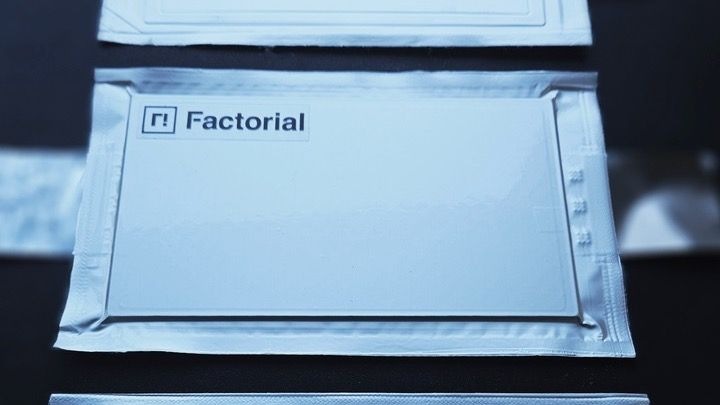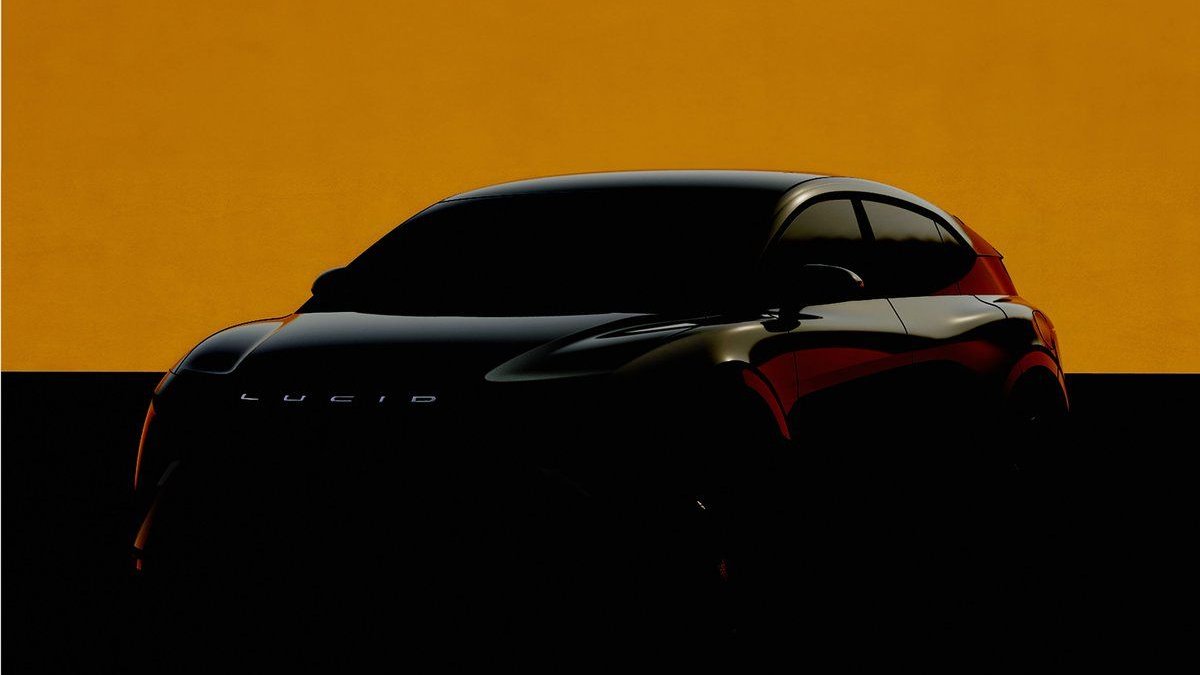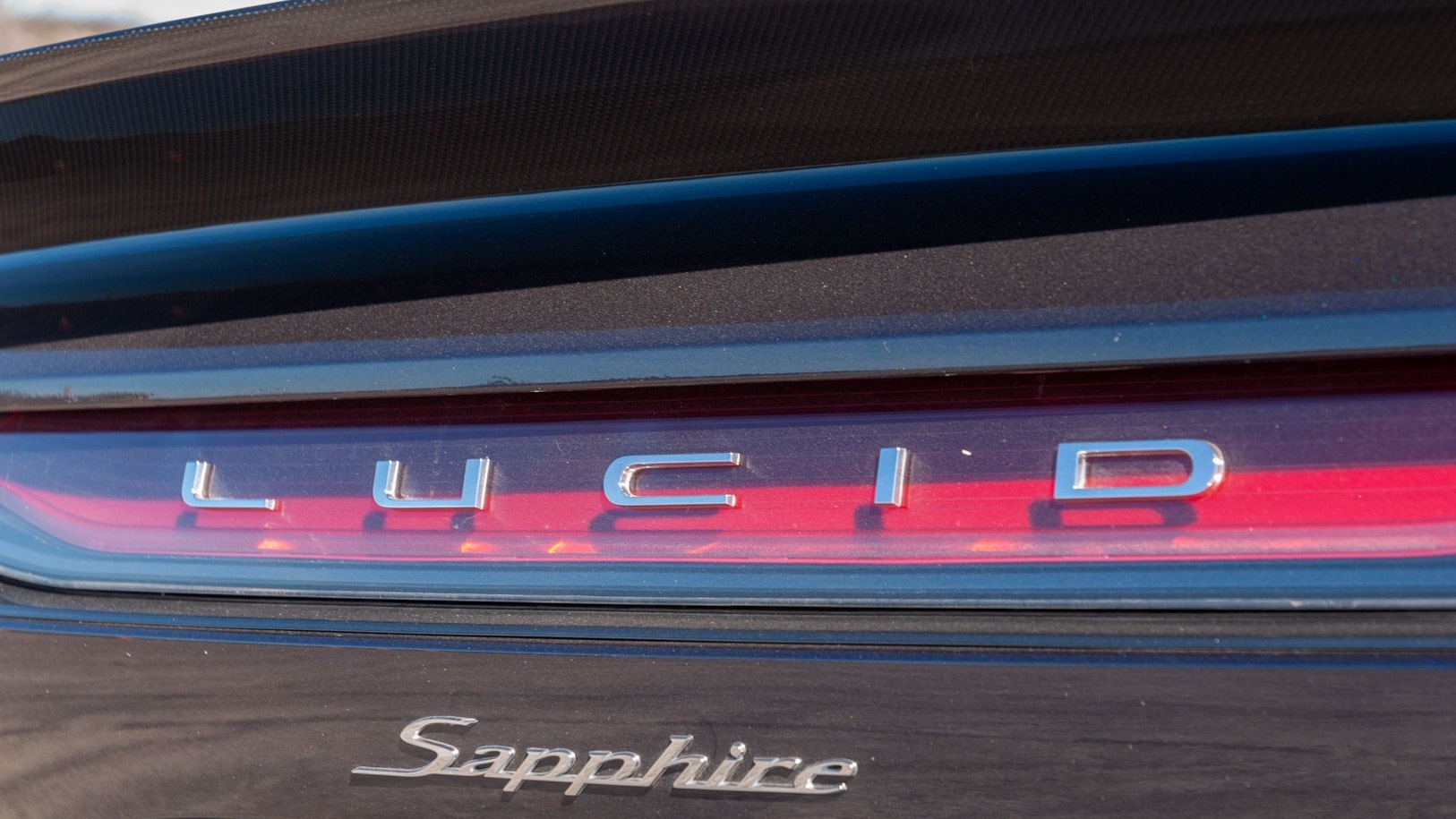BMW will launch a "series production" hydrogen fuel cell vehicle in 2028, with help form Toyota, the automaker announced Thursday.
The two automakers will jointly develop a next-generation fuel cell powertrain, which will be used in the planned BMW model as well as a future Toyota model, according to a press release. BMW plans to add this powertrain to an existing model, indicating the automaker still sees significant potential sales volumes in fuel cells.
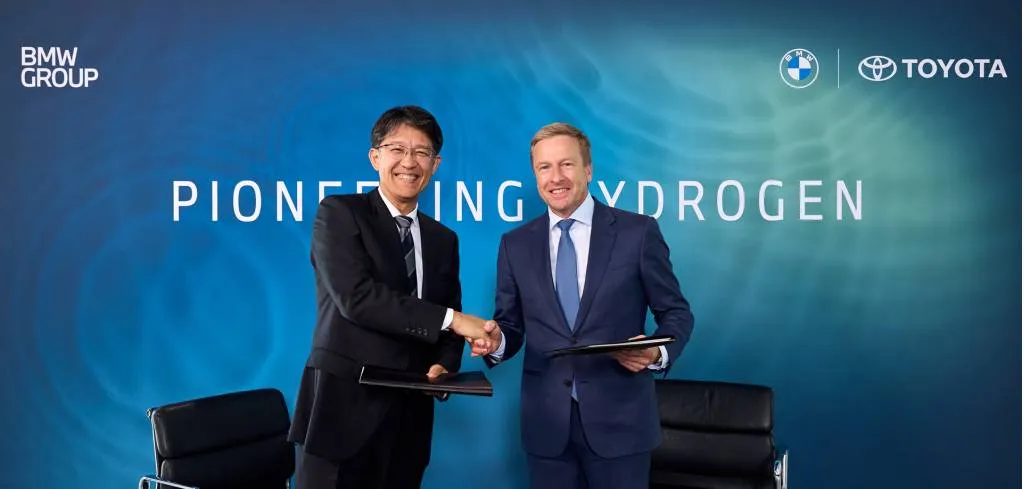
Toyota CEO Koji Sato (left) and BMW CEO Oliver Zipse
This aligns with BMW CEO Oliver Zipse's 2022 comments on the automaker's views on fuel cells. During an earnings call that year, Zipse said BMW would need fuel cell vehicles to achieve its electrification goals, which include making half the automaker's global sales volume electric by 2030.
Zipse also said at the time that BMW could adapt its next-generation EV platform to make room for fuel cells, although it's unclear if that is the specific plan for the 2028 fuel cell model. The first Neue Klasse EV—and SUV previewed by the Vision Neue Klasse X concept—is due to start production for the European market next year. U.S.-market vehicles will be produced in Mexico starting in 2027.
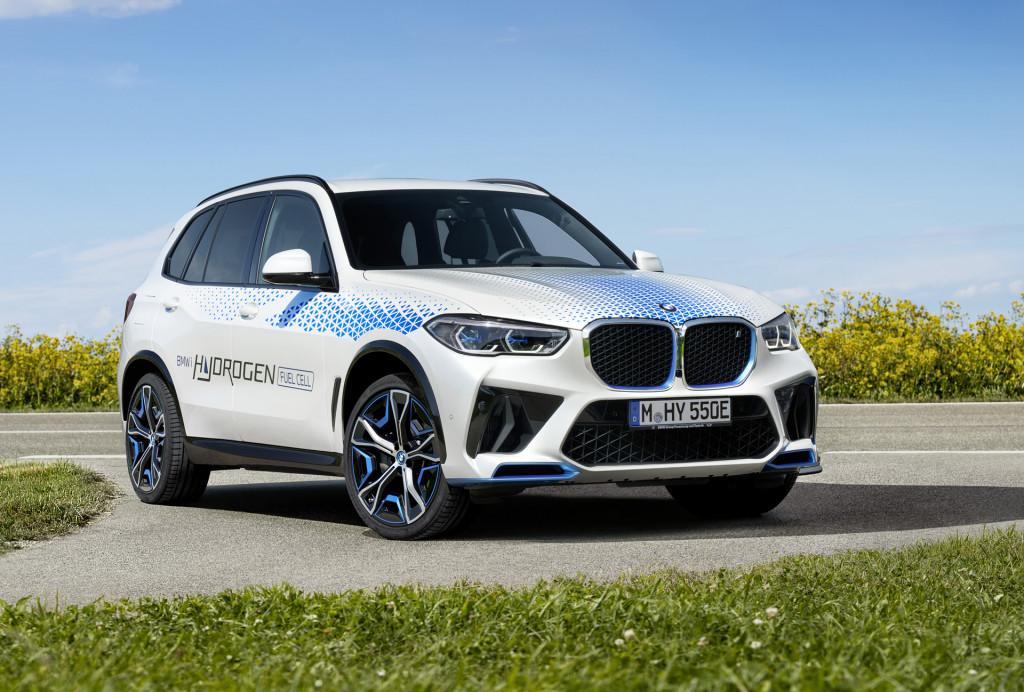
BMW iX5 Hydrogen prototype
BMW previously collaborated with Toyota on the iX5, a fuel cell version of the X5 SUV that uses a Toyota fuel cell stack and BMW electric-drive components. The first units were completed in 2022, but the iX5 is a low-volume vehicle intended primarily for test and demonstration purposes. Outside the realm of electrification, the automakers also collaborated on the BMW Z4 and Toyota Supra sports cars.
Toyota still sells its Mirai fuel cell vehicle in small numbers, but other automakers such as Mercedes-Benz and Hyundai have shifted more development resources to commercial trucks. That's a reflection of the challenges of developing fuel cell infrastructure and consistent hydrogen supplies. Scientists have also questioned the green credentials of fuel cells compared to batteries, noting that hydrogen still requires energy to produce and distribute that can increase overall carbon footprint. But it appears BMW is still keeping the faith.
